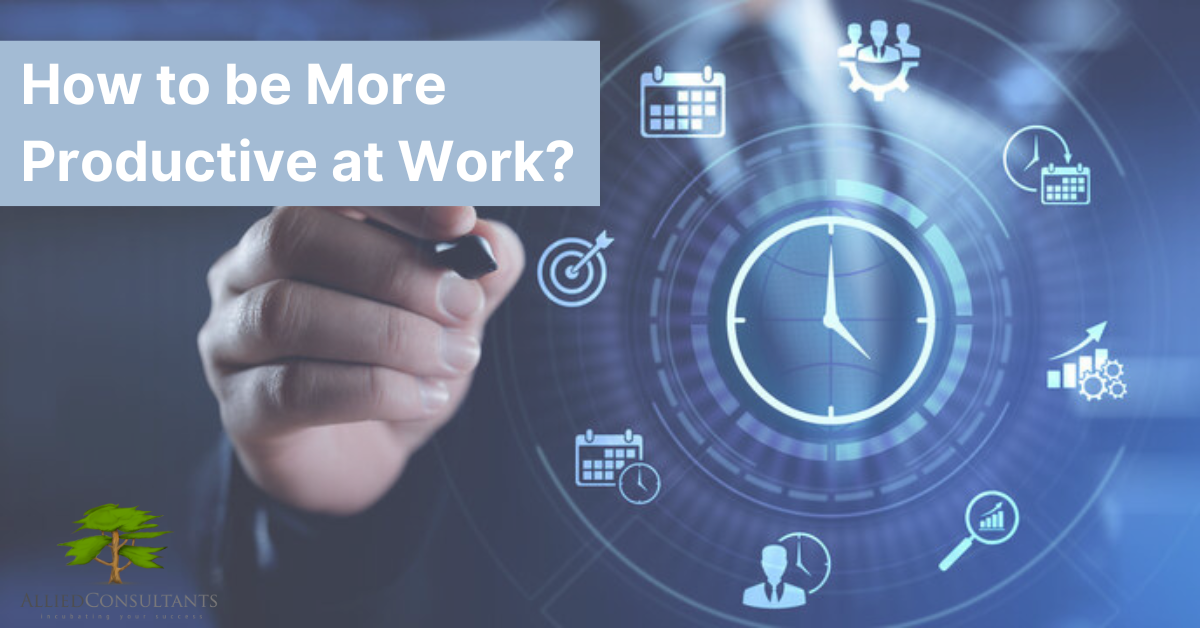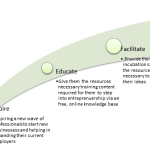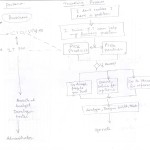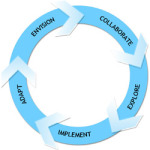How to be More Productive at work?
How to be More Productive at work?
Time management and organizational skills are referred to overall workplace productivity. Time management is one of the strategies that can be used to enhance one’s productivity. Moreover, applying the work-related strategies such as prioritizing your tasks in order of urgency and importance does wonders.
In this piece of writing, we will be talking about how to be more productive at the workplace. Let us begin by defining productivity.
What is productivity?
Though productivity is a term which can be applied to all areas of life, it is most frequently used in business settings. In the most basic form, productivity is the output measured by the input. However, quantifying productivity is not straightforward in case the results are not tangible. Some industries such as service provider industries, productivity is not measured in output.
Most of the time, when it is about how to be more productive, people usually turn to techniques of time management. No doubt, time management and productivity are interconnected, yet these are two different things. Not all productive people are good at time management.
Time management is a set of several tools and skills promoting effective use of an individual’s time. On the other hand, productivity is about achieving results within a specific time. At times, productivity does not come of effectively managed tasks – productivity is concerned with the outcome.
What is toxic productivity?
Have you heard the term “workaholic?” Well toxic productivity is a new term for workaholics with a modern spin. It is to be always productive, at the expense of all other pursuits.
Some of the examples include the trends on social media such as #ThatGirl or #girlboss; where women are encouraged to “have it all” by working, managing time to work out, look best all the time, cook healthy meals, and maintain an active social life.
No doubt, they are aspirational personalities, yet they represent a toxic level of productivity paired with a never-ending desire to achieve more. Eventually, it impacts our ability to value ourselves beyond what we do.
During COVID-19, the rise of remote working blurred the lines between work and family life. Even when people return to their workplaces, we have seen unhealthy need to be productive all the time and go an extra mile to achieve the never-ending desire of productivity. In fact, it has become an epidemic on its own.
Isn’t productivity a good thing? Well, in times of higher levels of stress such as pandemic – toxic productivity and continuous need to be seen busy only masks anxiety and stress. It eventually leads to burnout. A study conducted by the University of Manchester has discussed Workplace Stress and its Adverse Effects on Productivity: Workplace Wellbeing: Stress and Productivity at Work.
How to be productive at work?
Being productive is significant in all aspects of life wherever outcomes are required, however it is the most important within the work environment.
We are all aware that modern day workplace has shifted to a combination of remote, in-person, and hybrid workplace. In other words, over the years, the traditional 9 to 5 work settings have provided more flexible working patterns. Some of the changes have encouraged people to work better, while for others, new work dynamics have presented productivity challenges for employers and employees. Employers are now expected to develop new ways of tracking efficiency and motivate the workforce.
Regardless of the industry, you can easily boost your productivity by making certain simple adjustments to your everyday work schedule. Some of these adjustments are enlisted below:
- Habit stacking: Please do not expect your productivity habits to be transformed overnight. Focus on making incremental, and minor changes to find out what works and what does not.
- Time management: Focus on a series of skills to help you make the best and most of your workday. To be productive, time which you spend on activities must generate results. Look for time management strategies and define what works best for you.
- Accountability: Holding yourself accountable can enhance your productivity as well. You can create a diary system to hold yourself accountable and update the goals on a regular basis. It will keep you on track.
Tips for improving your productivity: Try to incorporate certain productivity tips into your everyday work schedule. Keep an eye on what works and what does not. It will enable you to build a longer-lasting plan to enhance your everyday work productivity. Continue reading to know a brief list of tips to enhance your workplace productivity.
- Stop multi-tasking: Well, no doubt, multi-tasking is tempting but the fact is that it rarely produces the desired results. Focusing on one task at a time enables you to complete it in less time and to a higher standard. It then allows you to move to the next task seamlessly.
- Set smaller goals: Normally a larger project or task can be intimidating. We usually end up overestimating how much time they will take to complete. You can easily create forward momentum by breaking the tasks into manageable and small milestones. These are bult until and unless the project is completed.
- Take a break: When it is about being productive at work, suggesting breaks may seem strange, however, regular breaks help in enhancing productivity and decreasing stress. Many workplaces make sure that employees get regular breaks. However, if you are working from home, you must schedule breaks of 10 to 15 minutes. During these breaks step away from your work, give your mind rest, and return to work with new motivation and ideas.
- Delegate: If you are working with a team, look at your daily tasks and see if you can delegate any task to other team members. Delegation is not about offloading the work you do not want to do. It is about ensuring that everyone is working on the task complementing their skills.
- Limit distractions: Getting distracted is normal and focus does not come naturally. However, this is a skill that can be developed. Switch your phone to aeroplane mode and turn off the notifications. The Pomodoro is commonly used as a technique to prevent distractions. Users set timer and remove all the distractions such as emails, social media etc. Knowing that you must focus for a brief time is one of the best ways to focus on the tasks.
- Do the hardest thing first: We are usually tempted to avoid the time consuming and difficult tasks and focus on the easier and quick tasks win. However, if you focus on and begin with the difficult tasks, it increases motivation. Try to prioritize the bigger and difficult tasks first.
- Set boundaries: To complete the tasks effectively and be productive, you must be capable of completing them in a pre-designated period. Setting time boundaries will enable you to complete the tasks stipulated on time.
- Identify that when you are being the MOST PRODUCTIVE: With the advent of remote working, traditional work setting of 9 to 5 has become less common. Hybrid and flexible working have shown new ways of being more productive. Everyone is different and individual. Some people work best in the morning while others hit their most productive stride right after lunch. You need to identify when you are being most productive and plan your daily workday activities accordingly to get most of the peak times.
Conclusion: We have enlisted some of the key aspects of enhancing productivity at the workplace. You may focus on trying one or two of these tips at a time to reduce stress and maximize professional productivity.



![[New Post] Answer these 14 Questions to become a Great Marketer](https://alliedc.com/wp-content/plugins/wordpress-23-related-posts-plugin/static/thumbs/4.jpg)



